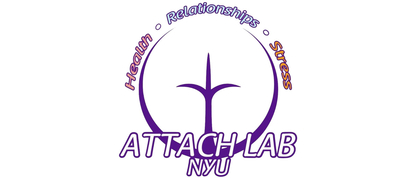
Who are the director(s) and team leads of this lab? Is it faculty-advised, student-run, or both?
The lab is run by our PI Dr. Stephanie Cook
What is the mission or primary focus of your lab's research, and how does it contribute to public health or interdisciplinary work?
The Attachment and Health Disparities Lab focuses on how stress and social factors impact mental and physical health, particularly among underserved communities. We explore how close relationships can either buffer or intensify the effects of stress, and we study these patterns across both real-life and virtual environments. Our goal is to better understand the root causes of health disparities and contribute to solutions that promote well-being and equity. In addition to this work, we’re also exploring how artificial intelligence tools can be used in college settings to support students and reduce learning gaps, especially for those from underrepresented backgrounds.
What types of skill sets do you typically look for in student researchers? Are these skills taught within or outside in the lab? What other skills have your students developed during their time with you?
While we welcome a wide range of skill sets, we particularly appreciate students who are passionate about research that centers underserved populations and who are eager to learn how to engage meaningfully with those communities. We also look for students with experience in participant management, strong organizational skills, and familiarity with data analysis tools like R and Stata. That being said, prior experience is not required—what matters most is a willingness to learn and a genuine interest in the lab’s work. Many of our students develop these skills during their time at the Attachment and Health Disparities Lab through hands-on experience and mentorship.
Can you share what you love most about your lab environment? (ex., mentorship style, collaboration, hands-on opportunities, team culture)
The lab environment is defined by its variety of backgrounds and perspectives, which fosters a collaborative and encouraging space. This range of experiences allows for innovative thinking and enriches the research process. Team members are united by a shared commitment to health equity and a genuine passion for improving health outcomes, particularly for underserved communities. The lab also emphasizes a strong sense of community, mutual respect, and ongoing learning, making it a supportive and engaging place to grow both personally and professionally.
What types of projects or roles are typically available for undergraduate and graduate students in your lab? Are there any upcoming opportunities for students to know about?
While there are no open positions at the moment, students are still encouraged to apply, as opportunities may become available throughout the year. In our lab, undergraduate and graduate students typically support a variety of projects, including participant management, data analysis using R or Stata, and recruitment through social media outreach. Students may also engage in literature reviews exploring the growing role of AI and emerging technologies in public health. These roles offer valuable hands-on experience and the chance to contribute to meaningful, equity-focused research.
How do you support student researchers in growing professionally and/or academically (ex., research exposure, developing new skills, publishing, presenting, networking)?
Our lab is committed to supporting the professional and academic growth of student researchers by involving them in nearly every stage of the research process—from project development to data collection, analysis, and close-out. This comprehensive exposure allows students to build a wide range of skills that are highly relevant across research and public health settings. Additionally, the lab brings together a diverse team of undergraduates, graduate students, and PhD candidates, creating a collaborative environment rich in mentorship and peer learning. This structure helps foster both skill development and meaningful professional connections.
Are there any recent projects or accomplishments from your lab that you’re particularly proud of?
We recently wrapped up the first round of recruitment for an NIH-funded research study focused on understanding how stress exposure influences engagement in negative cardiometabolic health behaviors—such as poor diet, lack of exercise, or substance use—and how support systems can help buffer those effects. In this initial phase, we successfully screened over 200 eligible participants, marking an exciting start to the project.
Contact information for the lab if students are interested?
If you want to reach out, you can contact us at healththabits@nyu.edu
How can students keep up to date with you and your lab? (Instagram, LinkedIn, Newsletter, etc.)
If you would like to keep up to date about our projects or fun adventures our lab participates in, feel free to follow us on Instagram @nyuahdl.